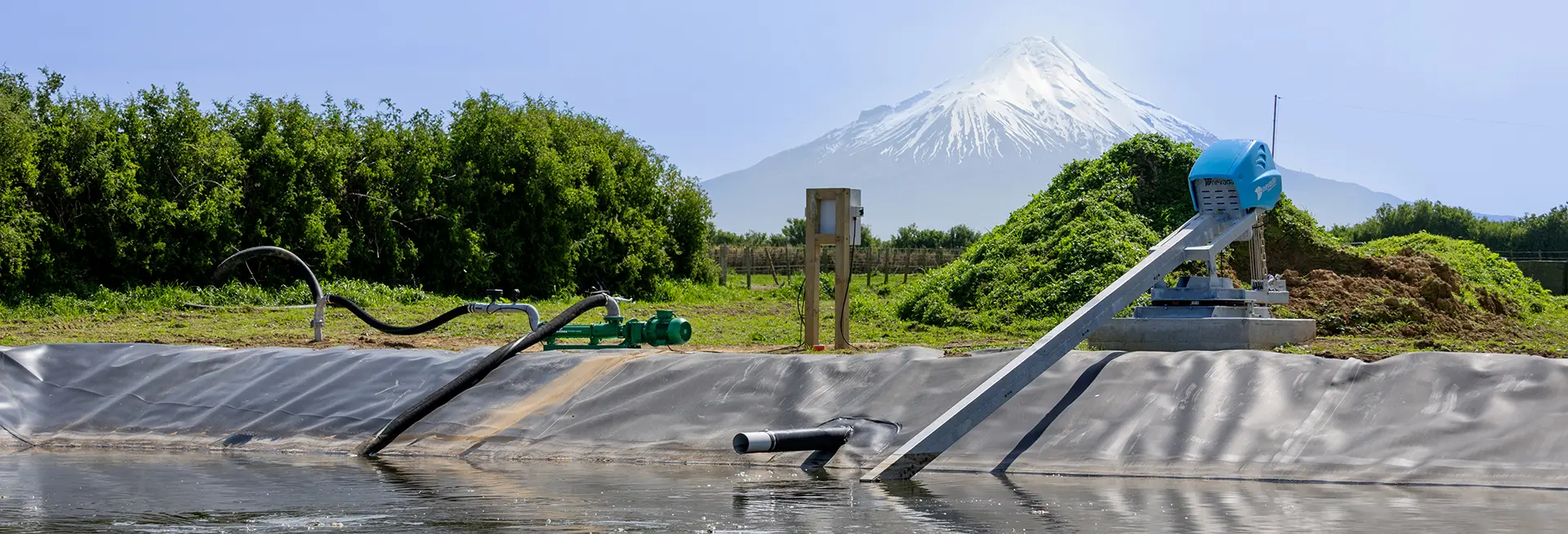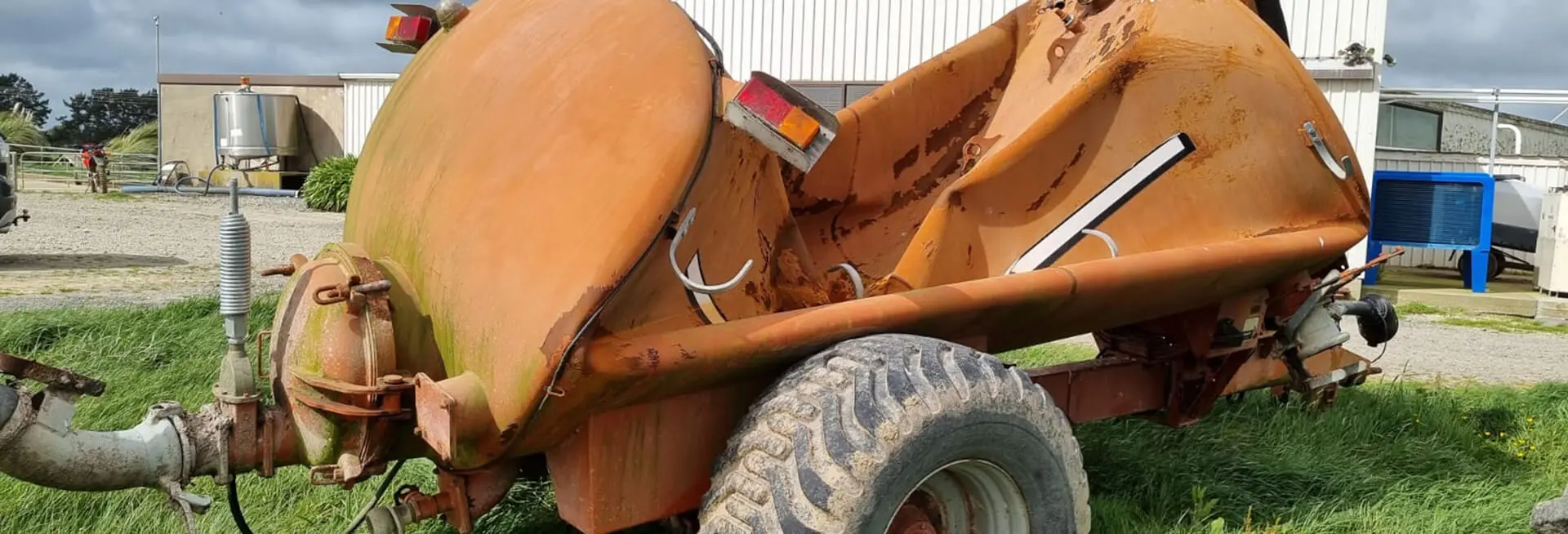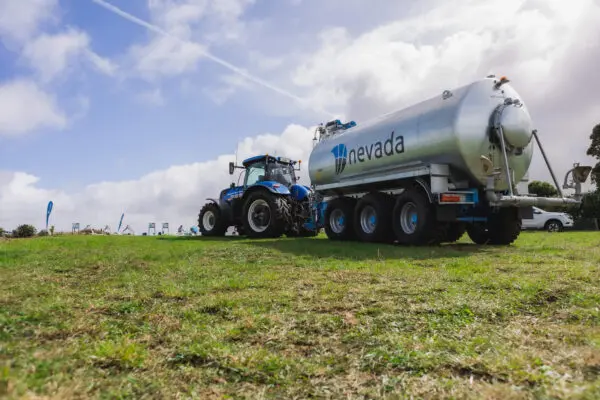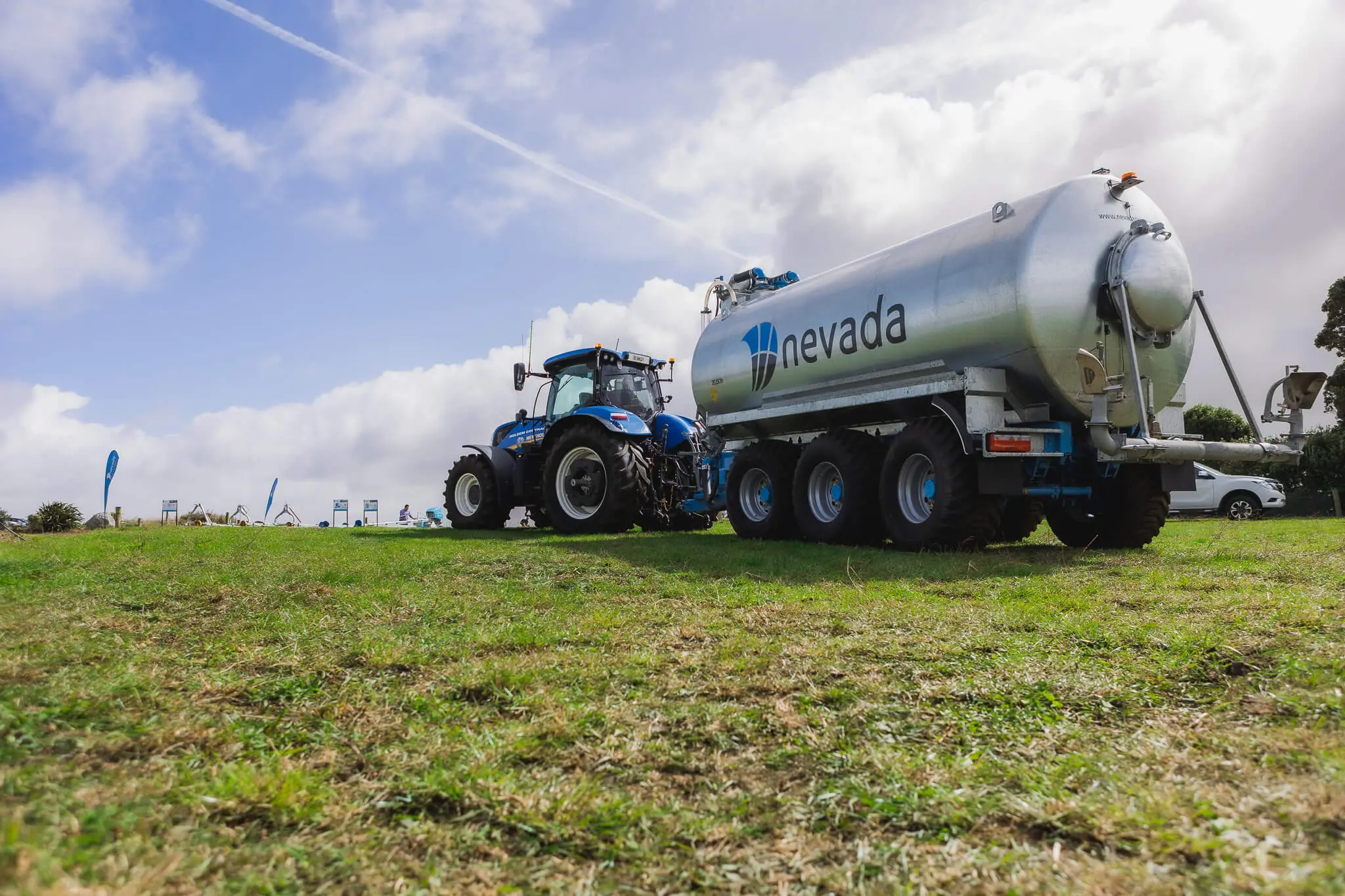Increases Water Holding Capacity
Irrigating has the ability to improve paddocks by increasing the water holding capacity of the soil to ensure the pasture recovers effectively. One approach to applying effluent to assist with improving pasture conditions is to utilise a Nevada RainWave™ Applicator.
With a gentle low-pressure rain pattern and the ideal heavy droplet size, the effluent is able to optimally reach the grass root zone. The droplets are then absorbed and able to activate properties to help the grass grow back faster. As a result, it gives the ability to rotate paddocks quicker for grazing.

Optimises Storage Capability
A dry summer is also a perfect time to empty ponds or storage holdings to get effluent out efficiently across the farm. In general, you will want to lower storage during Spring, Summer, and Autumn to ensure there is maximum holding capacity ready for the winter season.
Improves Soil Conditions
Paddocks that do not have farm dairy effluent applied to the soil do not turn out as lush as paddocks that have proper spreading of effluent across the farm. However, during the summertime it is important to remember to not spread effluent with heavy solids. Spreading with too heavy solids can burn the grass if the spread pattern is very fine particles, like mist. Which is why a Nevada RainWave™ is a good option for optimal spreading. The effluent doesn’t remain on the leaf of the grass, but instead due to its weight drops to the root zone, which lessens the need for rain to wash the effluent into the soil.
Rather than evaporating the pond during the dry season, you can utilise a valuable nutrient rich resource that is already on your farm. Dry summers can be difficult, but with the right strategy in place you can experience the benefits of spreading effluent throughout the summer months.
Come chat with our team to learn more about the best solution of irrigating effluent during a dry summer for your farm.





